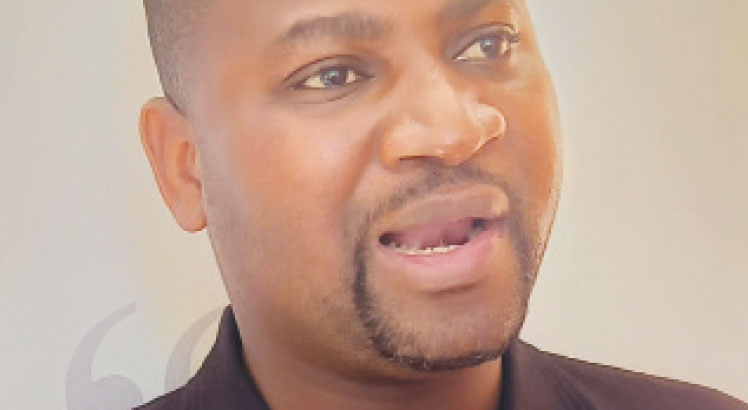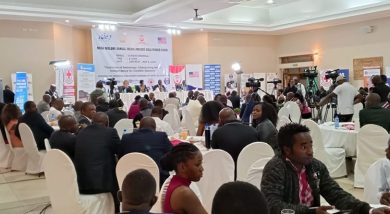Anti-graft strategy falters
The family of Chisomo Banda in Lumbadzi, Lilongwe is living dangerously as it’s two weeks since their house has had an electric fault.
She claims that when they switch on electronic gadgets, power sockets spark fire, resulting in plumes of smoke and a blazing smell.
Her efforts to ensure Electricity Supply Corporation of Malawi dispatches a team to fix the problem have been fruitless and she concedes: “I am exhausted and I have almost given up.”
“I have been calling them twice a day as a reminder. That makes it 28 times in total. All they say is that ‘we are coming’. They haven’t up to now.
“Other than fearing we could be killed by electric shocks, we are also prone to robbery attacks as there are no security lights at night,” she remarks.
Banda’s experience highlights the failure of millions of others to secure quality and timely public service.
It’s been marked as a fertile ground for corruption.
And this is one area the State-championed National Anti Corruption Strategy (NACS) II, was designed to improve when it came into effect three years ago.
With 10 months remaining before the game plan expires, the strategy is failing to solve the problem, as confessed by the NACS II national integrity committee (NIC), the strategy’s main governing team.
NIC chairperson Jeff Kabondo said there has been slow progress in improving service delivery in public institutions.
“Most public service delivery institutions are still being challenged to provide efficient and effective services, which is still a challenge in the corruption fight,” he said
The strategy is also choking since a majority of ministries, departments and agencies (MDAs)’have not complied with funding the agenda, it has emerged.
One of the strategies to achieve the NACS II goals was that MDAs should form an institutional integrity committee (IIC) to coordinate the blueprint implementation.
The MDAs were also ordered to remit one percent of their funding towards the committees.
However, Kabondo says 85 percent of the MDAs have not been complying.
“Some IICs are still facing challenges to access these funds for anti-corruption activities. This has been attributed to poor funding, but in some cases, it is sheer non commitment by controlling officers,” he said.
The non-compliance is despite the fact that the Office of the President and Cabinet (OPC) issued a circular advising all MDAs to establish these committees to champion the fight against corruption in the workplace.
He said the OPC further directed them to use and hedge one percent of their budgets for anti-corruption initiatives.
Government launched the four-year NACS II, a multi-sectoral bid to fight high levels of graft blamed for denting service delivery and draining public resources.
Its implementation involves a cross-section of the society, including the civil society, Judiciary, Parliament, media, local government and private sector.
Overall, NIC says implementation has well passed the half way mark.

“Most of the activities in the implementation plan have been implemented and some are underway. It is estimated that over 60 percent of the activities have been implemented,” Kabondo said.
The NACS II has three strategic goals; improving public service delivery, strengthening the rule of law and promoting a culture of integrity in society.
The chairperson asserts: “Under the strengthening of rule of law, a key milestone is the establishment of a financial and economic court which is envisaged to improve speedy disposal of corruption cases.
“In addition, the government has commenced development of whistle-blower protection legislation which will go a long way in the corruption fight in Malawi.”
As regards, inculcating culture of integrity he added: “We have incorporated ethics issues in the school curriculum, development of a source book on ethics.
“We have also developed the Umunthu anthem which will go a long way in inculcating a culture of integrity in Malawi.”
Asked to assess the chances of implementing the strategy fully in the remaining 10 months, Kabondo expressed doubts.
“I hope we will make good progress, but not all targets will be met. There are challenges with financing some activities,” he said.
The Parliamentary Legal Affairs Committee chairperson Albert Mbawala also punched holes in the MDAs performance in the corruption fight.
The committee was pencilled in the NACS II as an overseer of the implementation.
Mbawala said: “The National Steering Committee has yet to appear before the committee. However, we have engaged a number of MDAs to assess how the strategy is being implemented.
“Most are complying. We are just advising on enhancement of compliance. [The gaps are that] no guidelines on procurement procedures and no clear policies on corruption prevention and some were not reporting to the Anti-Corruption Bureau.”
On its part, governance watchdog the Centre for Social Accountability and Transparency (Csat) said it was difficult to justify progress in the strategy’s implementation when corruption investigations have slowed down.
“We feel that the role of the Anti-Corruption Bureau in terms of prosecution capacity and progress has dropped.
“Again, there is a lot of antagonism among the anti-corruption agencies that is frustrating the fight and eroding the confidence in citizens. For example, the recent government transaction with Sattar is basically a slap in the face of the ACB and Malawi as a people paying taxes.
“We also need to ensure that all MDAs have integrity committees that are functional and independent. Otherwise we have not done well in terms of enforcing the implementation of the NACS II,” said executive director Willy Kambwandira.





